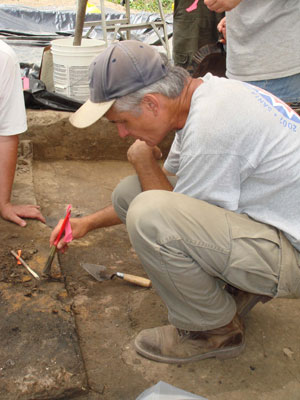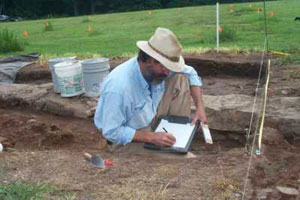Archaeologist
Tasks & duties

Archaeologists may do some or all of the following:
-
may assess archaeological sites for resource management, development, or conservation purposes
-
find and map the sites of past societies and cultures
-
map landscapes containing prehistoric features
-
direct the investigation of sites
-
record items uncovered by digging or surveys
-
draw and photograph items and sites
-
examine and identify the traces or remains of prehistoric structures
-
examine and analyse items to work out their age, cultural origin and use
-
look for patterns of a settlement's environmental use and impact
-
develop and test new theories on the origin and development of past cultures
-
write and present research findings for books, journals and conferences
-
teach archaeology, prehistoric anthropology and Māori studies
-
recommend methods for site protection
-
interpret sites for general public presentation
Skills & knowledge

Archaeologists need to have:
-
knowledge of past societies and cultures
-
knowledge of scientific research techniques such as radiocarbon dating
-
knowledge of excavation methods
-
knowledge of the Resource Management Act, the Historic Places Act, and the Reserves Act
-
research skills, including the ability to analyse and interpret information
-
oral and written communication skills
-
people skills
-
planning and organisational skills
-
basic maths and computer skills
-
photographic and drawing skills
Entry requirements
To become an archaeologist you need a Master of Arts majoring in anthropology and specialising in archaeology. If you want to teach or do research, a doctorate in anthropology specialising in archaeology is preferred.
Secondary education
A tertiary entrance qualification is required to enter university. Useful subjects include English, geography, history, Māori, computer studies, maths, biology, and chemistry.
Tertiary education
Tertiary training in archaeology is only available at the University of Auckland and the University of Otago anthropology departments.
Training on the job
Archaeologists usually gain digging and survey skills at university and on the job.
Useful experience
Useful experience includes paid or voluntary work on archaeological sites assisting with the analysis of tools, research and writing, library work or work in a museum.
Related courses
Anthropology
Archaeology
History
Sociology
For more information, please refer to Career Services.
Document Actions
